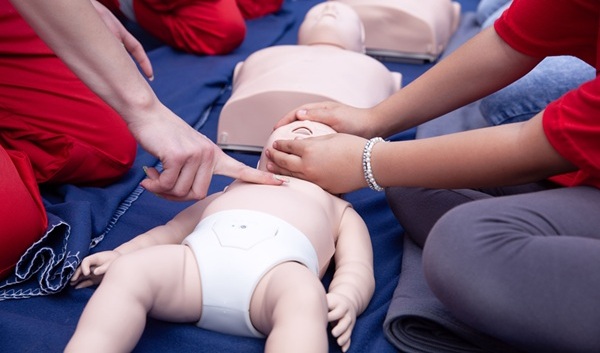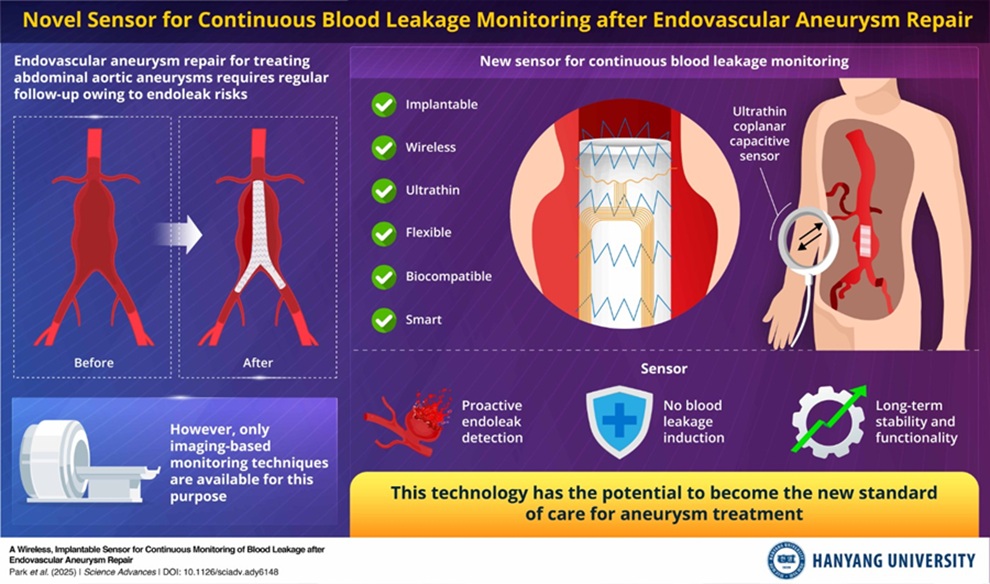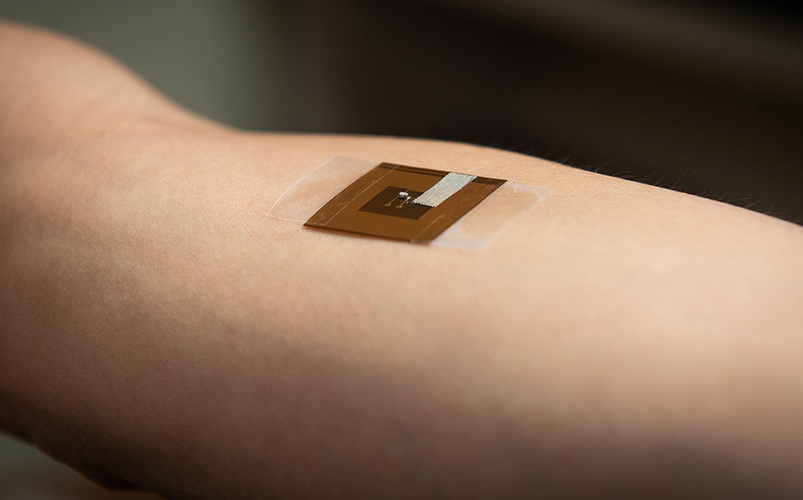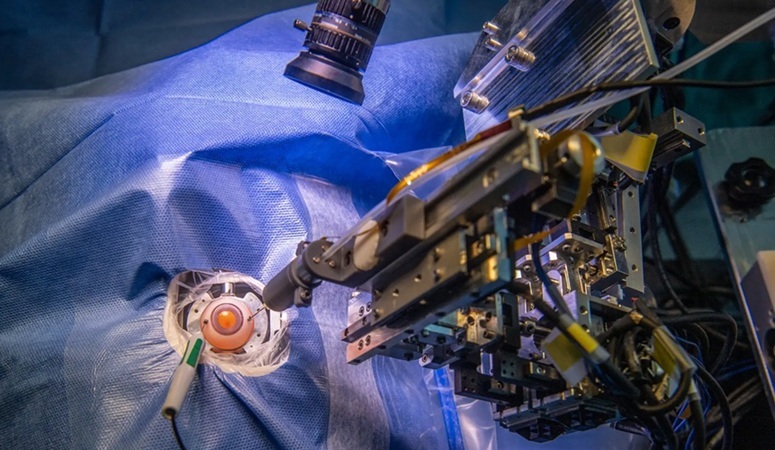AI Essential for Educating Next Generation of Medical Professionals
|
By HospiMedica International staff writers Posted on 08 Oct 2018 |
A new viewpoint study suggests that educating the next generation of medical professionals with the right machine learning (ML) techniques will enable them to become part of the emerging data science revolution.
Researchers at Boston University School of Medicine (BUMC; MA, USA) searched PubMed to uncover the number of papers published in the area of ML since the beginning of this decade. They found that while the number had increased, the number of publications related to undergraduate and graduate medical education in the field remained relatively unchanged since 2010, with a grand total of just 16 studies. Realizing the need for educating the students and trainees within BUMC about ML, the researchers designed and taught an introductory course.
The course is intended to educate the next generation of medical professionals and young researchers with biomedical and life sciences backgrounds about ML concepts to help prepare them for the ongoing data science revolution. The researchers believe that if medical education begins to implement a ML curriculum, physicians may begin to recognize the conditions and future applications where AI could potentially benefit clinical decision-making and management early on in their career, and be ready to utilize these tools better when beginning practice. The study was published as a perspective in the September 2018 issue of NPJ Digital Medicine.
“The general public has become quite aware of AI and the impact it can have on health care outcomes such as providing clinicians with improved diagnostics. However, if medical education does not begin to teach medical students about AI and how to apply it into patient care, then the advancement of technology will be limited in use and its impact on patient care,” said lead author Vijaya Kolachalama, PhD. “Technology without physician knowledge of its potential and applications does not make sense and will only further perpetuate healthcare costs.”
The rising popularity of ML techniques for medical applications is evident from the increasing amount of research, the number of products obtaining regulatory approvals, and entrepreneurial efforts over the past few years. Venture capital funding for healthcare AI startup companies was about USD 3.6 billion in the last five years, underscoring the increasing appreciation of the value that ML can potentially bring to the medical community.
Related Links:
Boston University School of Medicine
Researchers at Boston University School of Medicine (BUMC; MA, USA) searched PubMed to uncover the number of papers published in the area of ML since the beginning of this decade. They found that while the number had increased, the number of publications related to undergraduate and graduate medical education in the field remained relatively unchanged since 2010, with a grand total of just 16 studies. Realizing the need for educating the students and trainees within BUMC about ML, the researchers designed and taught an introductory course.
The course is intended to educate the next generation of medical professionals and young researchers with biomedical and life sciences backgrounds about ML concepts to help prepare them for the ongoing data science revolution. The researchers believe that if medical education begins to implement a ML curriculum, physicians may begin to recognize the conditions and future applications where AI could potentially benefit clinical decision-making and management early on in their career, and be ready to utilize these tools better when beginning practice. The study was published as a perspective in the September 2018 issue of NPJ Digital Medicine.
“The general public has become quite aware of AI and the impact it can have on health care outcomes such as providing clinicians with improved diagnostics. However, if medical education does not begin to teach medical students about AI and how to apply it into patient care, then the advancement of technology will be limited in use and its impact on patient care,” said lead author Vijaya Kolachalama, PhD. “Technology without physician knowledge of its potential and applications does not make sense and will only further perpetuate healthcare costs.”
The rising popularity of ML techniques for medical applications is evident from the increasing amount of research, the number of products obtaining regulatory approvals, and entrepreneurial efforts over the past few years. Venture capital funding for healthcare AI startup companies was about USD 3.6 billion in the last five years, underscoring the increasing appreciation of the value that ML can potentially bring to the medical community.
Related Links:
Boston University School of Medicine
Channels
Critical Care
view channel
CPR Guidelines Updated for Pediatric and Neonatal Emergency Care and Resuscitation
Cardiac arrest in infants and children remains a leading cause of pediatric emergencies, with more than 7,000 out-of-hospital and 20,000 in-hospital cardiac arrests occurring annually in the United States.... Read more
Ingestible Capsule Monitors Intestinal Inflammation
Acute mesenteric ischemia—a life-threatening condition caused by blocked blood flow to the intestines—remains difficult to diagnose early because its symptoms often mimic common digestive problems.... Read more
Wireless Implantable Sensor Enables Continuous Endoleak Monitoring
Endovascular aneurysm repair (EVAR) is a life-saving, minimally invasive treatment for abdominal aortic aneurysms—balloon-like bulges in the aorta that can rupture with fatal consequences.... Read more
Wearable Patch for Early Skin Cancer Detection to Reduce Unnecessary Biopsies
Skin cancer remains one of the most dangerous and common cancers worldwide, with early detection crucial for improving survival rates. Traditional diagnostic methods—visual inspections, imaging, and biopsies—can... Read moreSurgical Techniques
view channel
Robotic Assistant Delivers Ultra-Precision Injections with Rapid Setup Times
Age-related macular degeneration (AMD) is a leading cause of blindness worldwide, affecting nearly 200 million people, a figure expected to rise to 280 million by 2040. Current treatment involves doctors... Read more
Minimally Invasive Endoscopic Surgery Improves Severe Stroke Outcomes
Intracerebral hemorrhage, a type of stroke caused by bleeding deep within the brain, remains one of the most challenging neurological emergencies to treat. Accounting for about 15% of all strokes, it carries... Read morePatient Care
view channel
Revolutionary Automatic IV-Line Flushing Device to Enhance Infusion Care
More than 80% of in-hospital patients receive intravenous (IV) therapy. Every dose of IV medicine delivered in a small volume (<250 mL) infusion bag should be followed by subsequent flushing to ensure... Read more
VR Training Tool Combats Contamination of Portable Medical Equipment
Healthcare-associated infections (HAIs) impact one in every 31 patients, cause nearly 100,000 deaths each year, and cost USD 28.4 billion in direct medical expenses. Notably, up to 75% of these infections... Read more
Portable Biosensor Platform to Reduce Hospital-Acquired Infections
Approximately 4 million patients in the European Union acquire healthcare-associated infections (HAIs) or nosocomial infections each year, with around 37,000 deaths directly resulting from these infections,... Read moreFirst-Of-Its-Kind Portable Germicidal Light Technology Disinfects High-Touch Clinical Surfaces in Seconds
Reducing healthcare-acquired infections (HAIs) remains a pressing issue within global healthcare systems. In the United States alone, 1.7 million patients contract HAIs annually, leading to approximately... Read moreBusiness
view channel
Philips and Masimo Partner to Advance Patient Monitoring Measurement Technologies
Royal Philips (Amsterdam, Netherlands) and Masimo (Irvine, California, USA) have renewed their multi-year strategic collaboration, combining Philips’ expertise in patient monitoring with Masimo’s noninvasive... Read more
B. Braun Acquires Digital Microsurgery Company True Digital Surgery
The high-end microsurgery market in neurosurgery, spine, and ENT is undergoing a significant transformation. Traditional analog microscopes are giving way to digital exoscopes, which provide improved visualization,... Read more
CMEF 2025 to Promote Holistic and High-Quality Development of Medical and Health Industry
The 92nd China International Medical Equipment Fair (CMEF 2025) Autumn Exhibition is scheduled to be held from September 26 to 29 at the China Import and Export Fair Complex (Canton Fair Complex) in Guangzhou.... Read more












